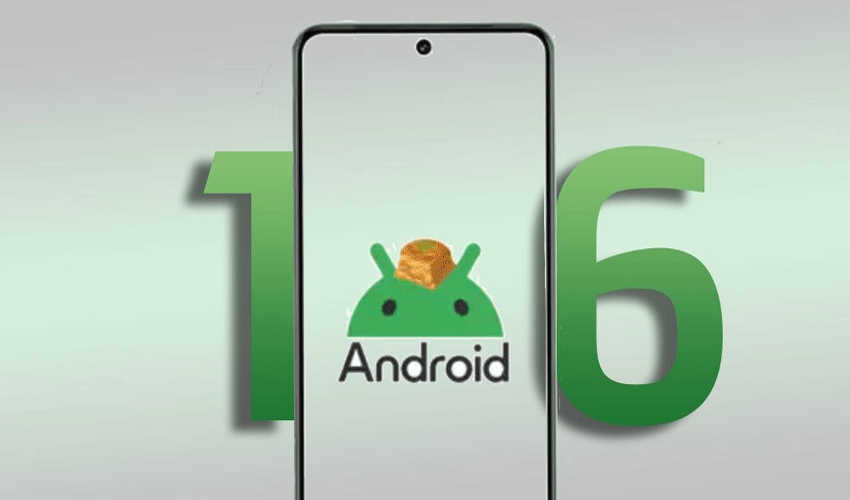A day after Apple showcased its next-generation operating systems at its annual Worldwide Developers Conference (WWDC), Google has launched Android 16 for its Pixel smartphones, accompanied by a host of new features, including artificial intelligence-powered tools and usability enhancements.
The Android 16 rollout, which commenced on Tuesday, is being delivered to eligible Pixel phones as part of a wider June software update, also known as the company’s “Pixel Drop”. The latest version brings real-time lock screen notifications, enhanced privacy controls, and a more expressive design language.
In a separate development, Google also announced improvements to its suite of apps and services, most notably the Photos and Messages apps, as well as enhancements to Google Wallet and enterprise functionality.
Key features in Android 16
Among the most prominent additions is support for iOS-style live notifications on the lock screen, designed to display real-time updates such as ride arrivals, delivery status, and ongoing activities. The update introduces Google’s Material 3 Expressive design, promising a more dynamic and customisable interface.
Security and privacy see significant upgrades. Android 16 now includes an expanded advanced protection mode, tailored especially for high-risk users such as public figures, and introduces new safeguards against theft and scams.
In terms of connectivity, Android 16 supports Bluetooth Low Energy (LE) audio devices, allowing users to route calls through external microphones for improved voice clarity. A new native control feature enables users to adjust audio volume directly from their smartphones when connected to external devices.
Later in the year, Google plans to extend Android 16’s capabilities for tablets, adding desktop-style window management and custom keyboard shortcuts to streamline multitasking.
Messaging, photos and accessibility
As part of an update to the Google Messages app, group chats using the Rich Communication Services (RCS) protocol will now be supported, bringing Android devices closer to feature parity with iMessage. Users will be able to customise icons for group chats, mute specific threads temporarily, and enjoy a richer messaging experience.
Google Photos is also receiving a significant AI boost. The app will soon be capable of making intelligent editing suggestions, such as removing, repositioning, or “reimagining” parts of an image based on context. The move is expected to enhance photo editing for casual users without needing third-party tools.
Accessibility continues to be a focus. The Magnifier app on Pixel 5 and newer devices will now allow users to describe objects verbally, with the app identifying and highlighting the relevant item while providing haptic feedback. Meanwhile, captions for videos—especially live streams—are becoming more descriptive, identifying actions such as whispering or yawning.
Pixel-exclusive upgrades
Google’s June Pixel Drop introduces several exclusive features to its flagship devices. A new “Pixel VIPs” widget allows users to monitor interactions with their favourite contacts, including WhatsApp communications, recent calls, and even updates like birthdays and shared locations.
Pixel 8a and newer devices will now include a battery health indicator—a feature curiously missing from the more premium Pixel 8 and 8 Pro. For users in Australia, Android’s Emergency SOS satellite connectivity is being rolled out, enabling critical messaging services even without mobile coverage.
In addition, Gboard now allows users to generate custom stickers using simple text prompts, while the Recorder app is expanding its AI-powered summaries to include support for French and German languages.
Enterprise and productivity tools
On the enterprise front, Android 16 introduces support for storing corporate badges in Google Wallet, simplifying access to office spaces for employees. Users can also utilise Google’s Gemini AI chatbot within the Docs app to summarise content, generate insights, and translate text.
Furthermore, Google Chrome on Android will offer improved handling of PDFs, including support for navigating linked documents, a feature particularly useful in legal and academic workflows.
The updates are being rolled out gradually to supported Pixel devices, with global availability expected over the coming days.
Competition with Apple
The Android 16 announcement comes just a day after Apple revealed a comprehensive set of enhancements across iOS, iPadOS, and macOS at WWDC 2025. Analysts suggest the close timing underscores the intensifying competition between the two tech giants as they continue to embed artificial intelligence into their respective ecosystems.
While Apple focused heavily on device integration and privacy enhancements, Google appears to be leaning into AI-driven personalisation and accessibility, cementing its emphasis on utilitarian and adaptive software design.



